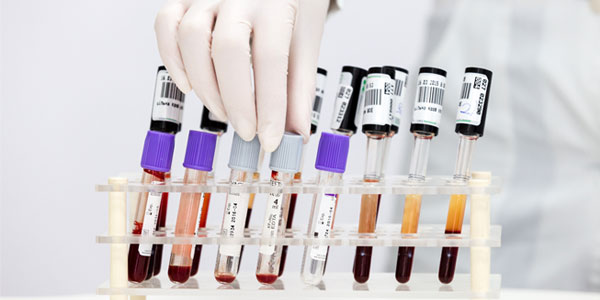Symptoms caused by hormonal issues can look like those of many other common conditions, so correctly diagnosing an endocrine disorder can take a bit of detective work.
Endocrinologists in the Sutter Health network use a variety of laboratory tests to measure the levels of various hormones in your body, which may reveal which endocrine system glands are not working correctly.
Blood Tests

- Tests to detect diabetes and prediabetes include the blood glucose test and the glycosylated hemoglobin test (A1c). Pregnant women may have glucose tolerance tests to screen for gestational diabetes.
- Several tests can see how well your thyroid is working.
- Several blood tests can help detect female hormonal issues.
- Tests for total testosterone can pinpoint male hormonal issues.
Imaging Exams
Your endocrinologist may order a number of imaging exams to look at the functionality of your endocrine system and the possible effects on other structures.
- A bone density scan, a simple x-ray, can assess your bone health.
- An MRI of the pituitary gland can reveal abnormalities of that structure.
- A thyroid ultrasound can show the structure of the thyroid gland. The radioactive iodine uptake test, assesses thyroid function by measuring how avidly the thyroid absorbs iodine.
Don’t suffer with hormonal issues any longer. Let one of our expert endocrinologists diagnose your condition and restore you to good health.












